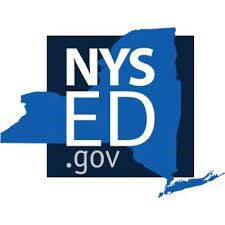CAS COVID-19 LEGAL UPDATE
The question has arisen as to what legal rights do members have when requested to return to work during this school closure. The answer will depend largely on the specifics of each individual case and the steps taken by each school district.
Pursuant to the Governor’s executive order 202.4, which closed all schools throughout the State, local government or political subdivisions (i.e., schools) were directed to “allow non-essential personnel as determined by the local government, to be able to work from home or take leave without charging accruals, except for those personnel essential to the locality’s response to the COVID-19 emergency.” There was an additional requirement that the number of “non-essential” personnel be at least 50% of all employees of that political subdivision (i.e., school district). It is this requirement that effectively required teachers to remain off-site. In a clarifying memo, the Secretary to the Governor provided insight on who should be considered “non-essential” while again reinforcing that it was ultimately up to the local government to determine.
Back in March, CAS was forced to write to the school district leaders of certain districts urging them to err on the side of caution to protect the safety of school administrators by keeping them home. The strategy has worked to this point, but will not be effective indefinitely as schools start to prepare for reopening.
CAS, and its statewide affiliate, ESSAA, continue to solicit the Governor’s office to ensure that the safety of school administrators remains a primary consideration. However, in consideration of the significant budgetary shortfalls that exist in many Long Island districts and the possibility that school closures may continue into the fall, CAS believes that arguing a violation of the Governor’s Executive Order, which essentially asserts administrators should be viewed as “non-essential” personnel is not in the best interest of administrative bargaining units. Our members are essential to the operation of their districts and CAS seeks to protect the positions of as many of its members as possible
So, what are the legal rights for members who are not comfortable physically reporting to work during the school closure? There are a few potential legal rights and/or arguments that may be available to members.
- Contractual Leave:
The use of sick, personal, and/or vacation time: Unit members who have been or believe they have been exposed to COVID-19 and/or experiencing possible symptoms or who are self-quarantining due to exposure have right to take contractual leave. For administrators who are or have recently tested positive for COVID-19, they may be required to remain at home without any deduction from sick leave accrual.
- Families First Coronavirus Response Act (FFRCA)
In addition to the contractual leave entitlement, members would also be entitled to sick leave under the FFRCA. However, this provides sick leave related to specific COVID-19 reasons (including child care), but at rates that are well below the daily rate of pay for many of our members.
The two main parts of FFRCA applicable to unit members are: (i) Emergency Family Medical Leave Expansion Act (EFMLEA) & (ii) Emergency Paid Sick Leave Act (EPSLA).
- EFMLEA– provides a temporary expansion of FMLA for specific novel coronavirus situations. The first 10 days of leave under the EFMLEA are unpaid. The employee may elect to substitute paid vacation, personal, medical, or sick leave. After 10 days, the employee is entitled to pay at two-thirds of the employee’s regular rate of pay. Maximum compensation is $200 per day, with a maximum of $10,000 in total. EFMLEA is if the employee is unable to work (or telework) due to the need for leave to care for a son or daughter under 18 years of age of such employee if the school or place of care has been closed, or the child care provider of such son or daughter is unavailable, due to a public health emergency.
- EPSLA– provides additional sick leave to employees who are absent due to certain specific coronavirus-related reasons, including care for a child whose school or child care provider is closed or unavailable for reasons related to COVID-19. However, in this instance, there again is a cap of $200/day and $2,000 aggregate for such use. IF EPSLA is requested due to individual illness or suspected COVID-19, then the cap becomes $511 per day with a maximum amount of $5110.
3. Occupational Safety and Health Act (OSHA)
All school districts are required to comply with the terms of OSHA. OSHA states that an employee who has a specific fear of infection that is based on fact (not generalized fear) could legally refuse to come to work. However, even in the instance where an employee could demonstrate a specific fear, the school district would still be allowed to address that employee’s specific fear in a manner designed to ensure a safe working environment (i.e., cleaning, masks, gloves, distancing, etc.). It is worth noting that OSHA does recommend that employers establish flexible worksites and modified schedules to increase the physical distance between employees.
- American’s with Disability Act (ADA)
Unit members who have comprised immune systems as a result of an underlying medical condition that falls within the ADA’s definition of a “disability” may want to consider requesting continuation of remote work as a reasonable accommodation pursuant to the ADA. This is a very fact specific situation, so unit members would be advised to reach out and discuss their situation with CAS legal counsel before making such a request.
- Federal, State and Local Directives:
School districts will be required to comply with all directives issued by the federal, State and local governments in relation to reopening the State. These directives will likely require that all school districts evaluate workplace layouts to make sure social distancing can be maintained as well as require all employers to provide requested personal protection equipment. School districts will also need to start implementing rules and guidelines on sharing equipment and supplies as well as considering building modifications to ensure State guidelines are met. Each school district must devise and submit a plan to the State on how they are planning to reopen in September.
- Collective Bargaining Agreements
There may be provisions or language within your unit’s collective bargaining agreements that require a safe workplace or certain assurances. Such contractual language may force school districts to provide certain safety measures, workplace safeguards, modified schedules, and other protections. These contractual clauses can allow units to require that their district provide and take necessary precautionary steps and measures.
7. Taylor Law:
The Taylor Law provides certain protections and safeguards to units in relation to demanding and requesting certain workplace safety accommodations. Units required to begin reporting can request to engage in bargaining concerning the requirement to report to working during these school closures.
Conclusion
In closing, as detailed above, there are rights that may be available to individual unit members who are not comfortable reporting; however, each situation should be handled on a case by case basis. Therefore, all units are advised to please instruct any member who is not comfortable reporting back to work to contact the CAS office to discuss their individual concerns. It is our understanding that many units have already been sporadically reporting back into their offices and that most districts have been willing and open to modified work schedules and accommodation requests. If the unit president finds this not to be the case in their unit, please contact the CAS office.






